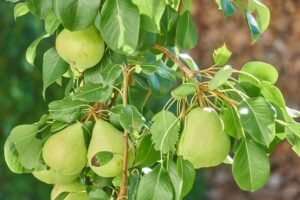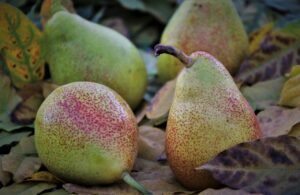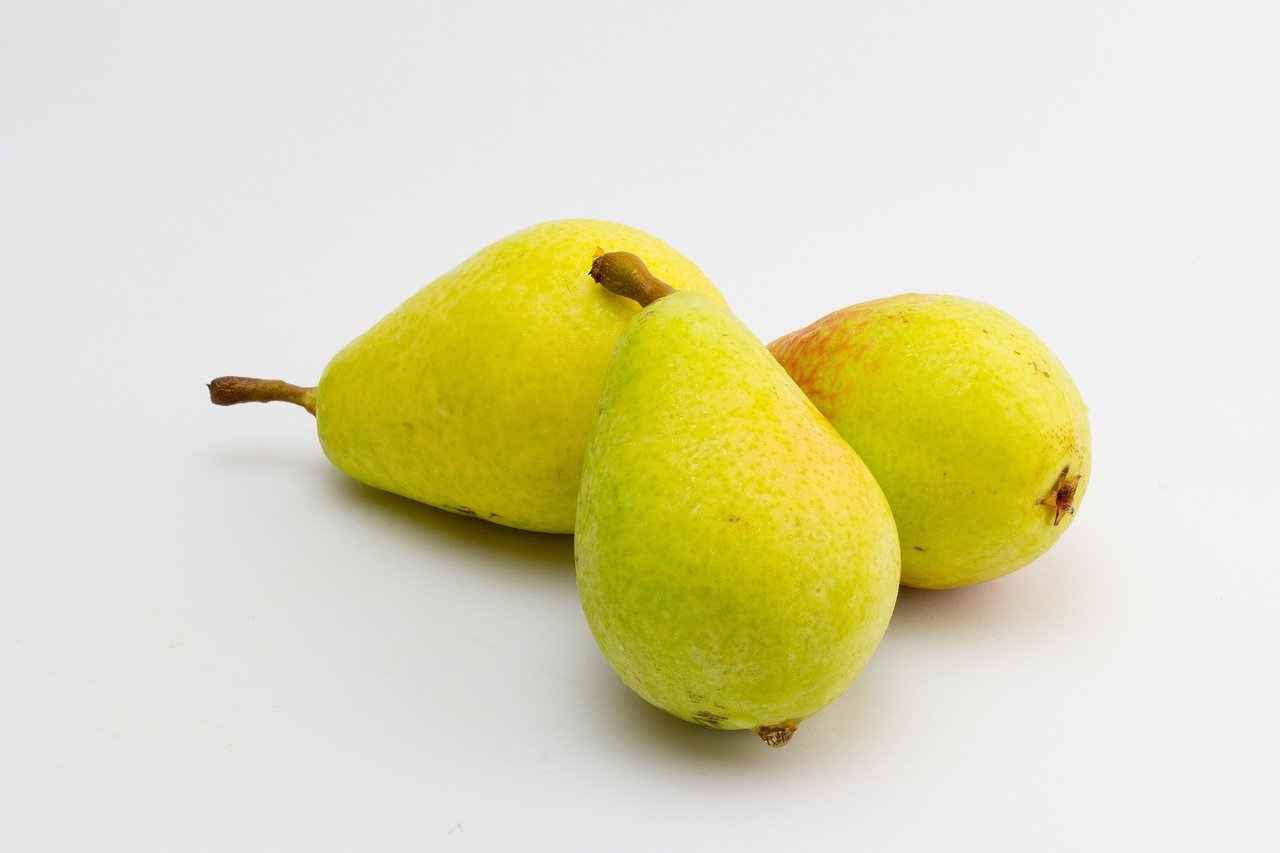Introduction
Pear is among the oldest cultivated plants in the world. It grows in various agroclimatic conditions and can tolerate temperatures from -26 to 46 degrees. That’s why it is known as a hardy crop. Fully mature pear trees attain a height of 10-13 m. The leaves on the tree are 2.5 cm in length and dark green colored. Generally, the tree bears fruit for up to 75 years. The fruits are juicer and sweet. Fruit harvesting season starts in August and ends in October. China is the top producer of pear followed by the United States, Argentina, and Turkey.

Nutritional value
It is usually consumed as a fresh fruit or is processed into jams, jellies, and juices. It contains fibers, phytonutrients, minerals, and vitamins. Pears have the highest insoluble fiber content than other commonly consumed fruits.
Carbohydrates
When compared to apples, pears contain relatively lesser amounts of carbohydrates, categorized as low GI food with a score of 38. Almost 60% of carbohydrates are present in sugar form in them. Fructose is the most predominant sugar in pear. A sugar alcohol, sorbitol, in pear, makes its composition different from other fruits. The average amount of sugar in pear is 10.4g/100g of fruit.
Protein
Almost all amino acids are present in pear, with aspartic and glutamic acid as major amino acids.
Dietary fiber
Pear contains water-soluble dietary fiber (SDF) and water-insoluble dietary fiber(IDF). Pear peels have higher fiber than flesh.
Lipids
The average content of fat in pear is 0.1g/100g, which is a nearly negligible amount. It is mainly available as an unsaturated fat. Alpha-linolenic acid is the predominant fatty acid followed by stearic acid, palmitic acid, and archidic acid.
Minerals
Out of all essential minerals, 9 are present in pear which includes calcium, magnesium, sodium, potassium, zinc, manganese, iron, copper, and boron. They are present in appreciable amounts. These minerals have important roles in both plants and humans.
Vitamins:
Except for vitamin D, pears have all fat-soluble vitamins. In addition to these, pears also contain ascorbic acid and B complex vitamins.
Organic acids
Different organic acids having various roles, are present in pears. Some of them contribute to the flavor of fruits. Some have a role in lipid metabolism and some regulate glucose etc.
Phytochemicals:
Pear plants contain phytochemicals that protect them from foreign entities. They also improve health.

Health Benefits
-
Cardiovascular diseases
Cardiovascular disease is the leading cause of death worldwide, causing disability and premature death. It is primarily caused by sedentary lifestyles and irrational nutritional habits. Consuming fiber and fiber-rich foods can reduce the risk of coronary heart disease and stroke. Pectin, a water-soluble fiber, can lower LDL and cholesterol levels by binding cholesterol molecules and blocking cholesterol entry.
-
Diabetes
Fruits, particularly pears, can help prevent the spread and occurrence of diabetes by down-regulating total cholesterol, triglycerides, and LDL-C content, and enhancing HDL-C levels. Pear peel contains bio-active compounds like chlorogenic acid, vanillic acid, ferulic acid, and rutin, which have a hypoglycaemic effect.
-
Cancer treatment
Consumption of pear reduces the incidence of many cancers such as lung, bladder and oral cancer.
-
Prevent Constipation
Pear intake prevents constipation by regulating bowel movement.
-
Wound healing and liver protection
Pear help in healing wound and also play role in protecting liver.

-
Control Weight
Pear also helps in controlling weight as it adds little calories while adding bulk to the diet.
-
Pears can treat respiratory ailments
-
Improves gastrointestinal health
Conclusion
Pear is a fruit, with a vibrant nutrient composition. It contains carbohydrates, proteins, dietary fibers, lipids, minerals, vitamins, and phytonutrients. Due to the presence of this many nutrients, pear helps in treating a number of diseases i.e. cardiovascular diseases, cancer, and diabetes.

